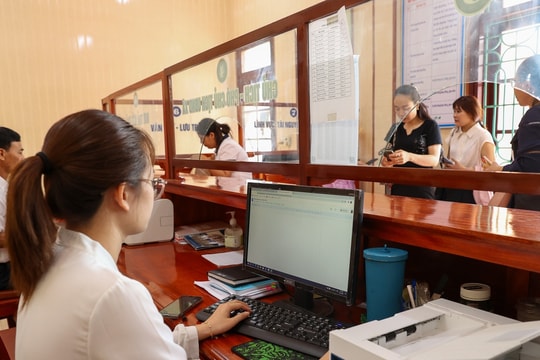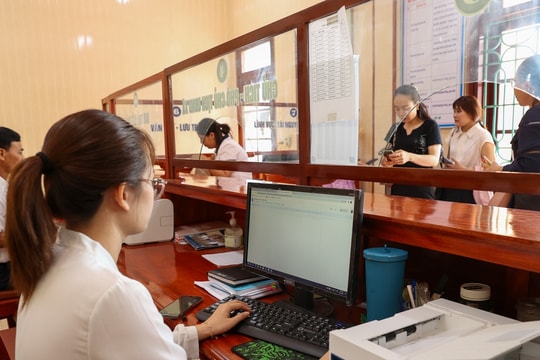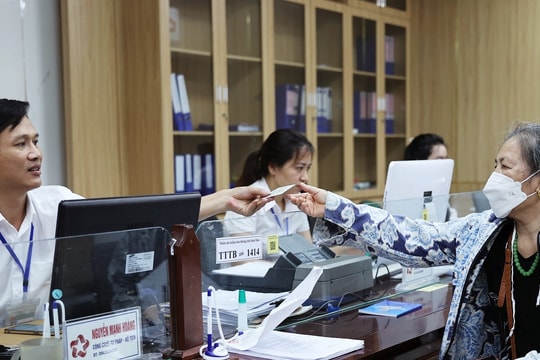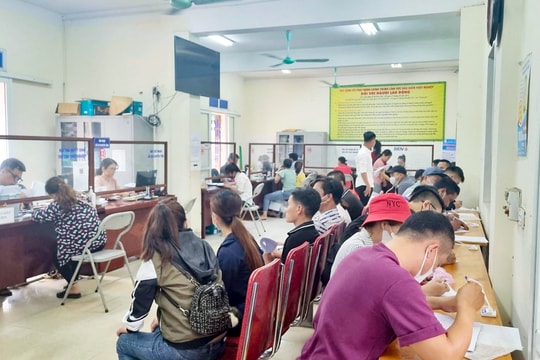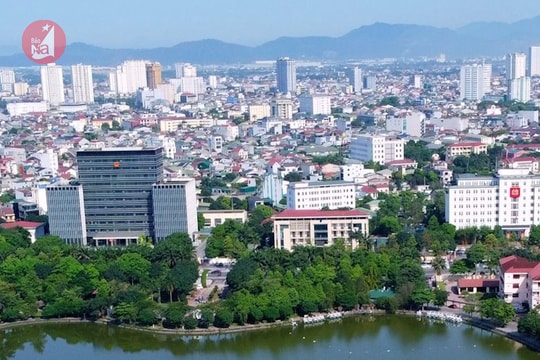Must overcome barriers of respect and fear of collision to streamline the apparatus
According to Mr. Thang Van Phuc, we must overcome the barriers of deference, avoidance, and fear of conflict in order to streamline the apparatus. Nowadays, having many degrees does not automatically mean good. Most importantly, cadres and civil servants must be people with real talent and real work.
Mr. Thang Van Phuc - former Deputy Minister of Home Affairs said that we must overcome the barriers of deference, avoidance, and fear of conflict in order to streamline the apparatus. At the same time, we must mobilize and grasp the thoughts and feelings of cadres, civil servants, and public employees before removing them from public service positions, not in the way of "squeezing the lemon and throwing away the peel".
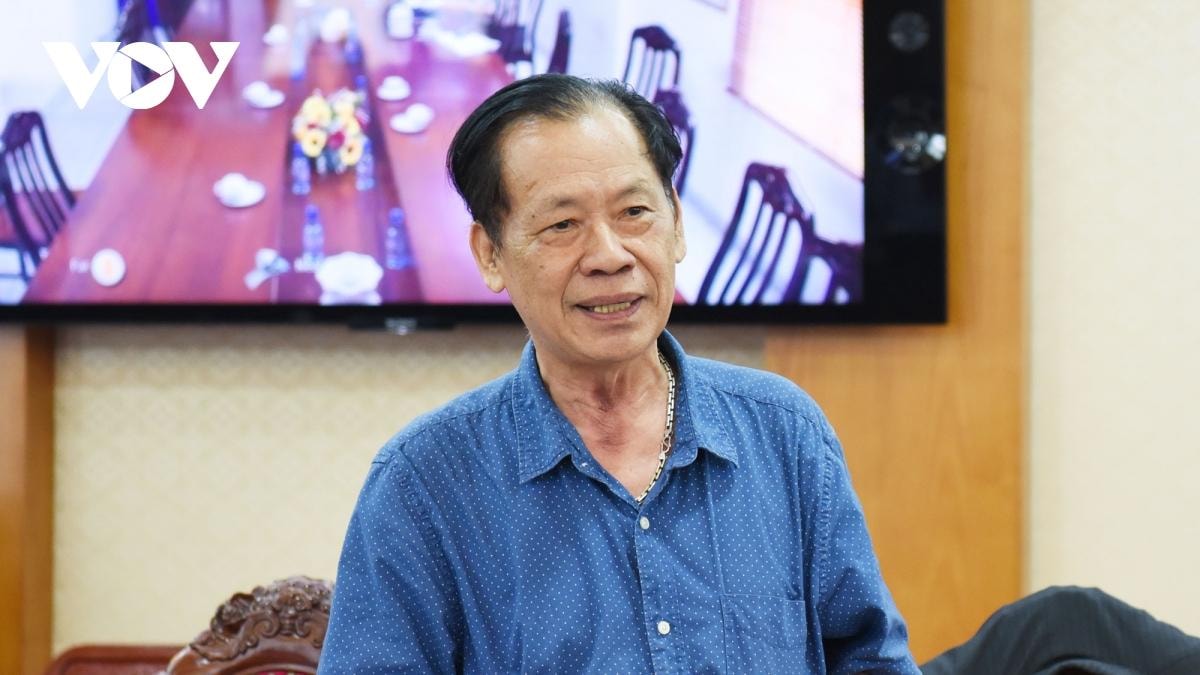 |
Mr. Thang Van Phuc - former Deputy Minister of Home Affairs. |
PV: Having participated in the management of civil servants and public employees for many years, what is your assessment of the recent streamlining of staff?
Mr. Thang Van Phuc:The issue of streamlining and streamlining the payroll is a major policy in the overall administrative reform program from the period 2001-2010, 2011-2020 and is still continuing. This is not an easy reform because it is directly related to the apparatus and people, that is why the difficulty has lasted for many years. And there is a very important step forward that in the past 10 years, the rate of administrative payroll reduction has increased, especially in the period 2015-2021, we have exceeded the target of streamlining by 10%.
In the recent past, we have had specific policies and solutions; systems, instructions, and strict inspections; all levels have also been more proactive in implementing the Party and State's policies.
Recently, after the 13th National Party Congress, especially the 4th Central Conference of the 13th tenure, the Prime Minister also requested that the administrative staff will be reduced by 5%. This is also carried out with many advantages because we are continuing to rearrange the agencies after completing the Government for the 2021-2026 term. Therefore, the goal of reducing the administrative staff by 5% will be achieved.
At the same time, further promote autonomy and self-responsibility of public service units; transform the public sector into an autonomous and self-responsible sector and for mechanisms and policies. This will encourage creativity and service awareness of officials, as well as better service results, thereby making the regime and policies for officials, civil servants and public employees more positive.
Scientists must live by their products and creativity. If they continue to receive administrative subsidies, they will not be able to meet the requirements of the new development period as well as the demands of autonomy, creativity, and dynamism.
Therefore, the most important thing is still a truly positive policy, strategy, and solution that addresses the interests of the State, the interests of the unit, and the interests of the workers, officials, and civil servants. And gradually, the public sector is no longer an urgent problem, and officials, civil servants, and public employees are willing to work in organizations where they can develop and work well. The results of streamlining the payroll in the recent period have been opening up opportunities for us to achieve the goals for the new period.
PV:Although in the 2015-2021 period, for the first time, we have exceeded the 10% streamlining target. However, in general, the implementation of the policy still has some limitations such as the organizational structure has not completely overcome the overlap in functions and tasks between ministries and ministerial-level agencies, the principle of assigning one task to only one agency to preside, implement, and take primary responsibility has not been strongly promoted, sir?
Mr. Thang Van Phuc:In fact, we have just reduced the number of staff according to the plan, the ministries and branches have reduced their staff but the internal structure of the ministries and organizations has expanded. Obviously, the streamlining of staff needs to be more determined, as before 2000, there were very specific regulations, for example, the deputy level in the ministry and branch units had 3 people, any unit with 4 deputy ministers had to explain. The same is true at the local level, provinces and cities have 1 chairman, 3 vice chairmen, any locality with many vice chairmen had to explain. All of these things are strictly controlled. However, there was a period when we were lax and could not implement it, so now there are still ministries with 6-7 deputy ministers.
I think that we must promote the responsibility of the leader. In the goals and tasks of administrative reform from the year 2000 onwards, there is a very important mission, which is to reform to change and adjust the functions and tasks of the ministries, shifting to macro management of the whole society by legal policies, not hand-holding like in the subsidy period.
If we make such a strong shift, while clarifying the specific responsibilities, functions, and tasks of each organization and unit and mastering the tasks assigned by the State and the law, then we will have the opportunity to achieve the goals of streamlining, including leadership personnel to cadres and civil servants, as well as streamlining the internal structure of ministries.
For example, recently, a lot of general departments have been reduced, leaving only departments. That is also the direction that needs to be actively implemented to be able to streamline, not to reduce each person but to have a reasonable organizational system and resource structure, suitable for the goal of clear people and clear tasks; ministries, branches, and organizations only do the main assigned work and 1 person is mainly responsible. Coordination and connection are just functions, not to set up too many committees and joint steering committees. This is something that has been done very resolutely since the period 2001-2010, from 200 committees and joint steering committees reduced to more than 80 committees and steering committees. But now there may be more, making the apparatus continue to be heavy and responsibilities unclear. Therefore, it is necessary to review it all.
Another important thing is to determine the public service and employment regime. We must modernize and professionalize civil servants by having a system of civil servants recruited at all levels. Civil servants from production, business or private sector units can be recruited directly to work as senior specialists or senior specialists.
PV:You mentioned the fundamental factor of assigning responsibility to the leader in implementing effective staff streamlining. So what is the responsibility of the leader when in reality, there are still incompetent officials and civil servants who are still receiving salaries in state agencies?
Mr. Thang Van Phuc:That is why we have redefined the public service position and job position, which is also a step to standardize cadres and civil servants. Based on the comparison with the standards and the actual capacity of the cadres, if anyone cannot meet the standards, we must resolutely put them on the streamlining list. Once this issue is clear, the superior management agency must also have approval to avoid "personal relationships" and fear of conflict.
Removing a person from a public position is not a simple task, it is not something you can just decide and it is done, it is a process of movement, looking at the mindset and psychology of the cadre. When the cadre's capacity does not meet or is not suitable for the public position, it is not possible to remove them immediately.
The streamlining policy from the early 2000s has proposed three ways to remove officials from public service: if the criteria are not met, send them for training; transfer the unit from the public sector to an autonomous, self-responsible unit; and train them to transfer to another field, instead of removing them from public service like "squeezing the lemon and throwing away the peel".
Accordingly, it is necessary to promote the responsibility of the collective and individuals. If any unit cannot do that, it is necessary to assign responsibility to the human resource organization and the head.
PV:Some people say that to have a streamlined apparatus, we need to overcome the barrier of being considerate, afraid of conflicts, and for the benefit of the industry and locality. What is your opinion?
Mr. Thang Van Phuc: That's right. We must overcome the barriers of deference, avoidance, and fear of conflict in order to streamline the apparatus. Nowadays, having many degrees is not necessarily a good thing. Most importantly, officials and civil servants must be people with real talent and real work.
The main thing is to respect their dedication, work efficiency or real results. To properly evaluate cadres, it requires leaders and human resource organizations to be fair and objective.
Without timely and quick solutions, it will be difficult to achieve the set goals. Therefore, we need to "roll up our sleeves", be determined, and work with a sense of responsibility to the people and the country to be able to achieve the set goals.
PV: Thank you sir./.

